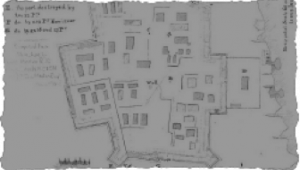
Warfare
and Society



The concept of utu really is the key to understanding traditional Māori warfare. Utu is sometimes translated as “revenge” but this is incorrect. Utu actually means “repayment” or “balanced by an equivalent”. If an offence was committed, the party wronged would seek repayment to restore their mana. A failure to extract utu would cause the offended party to loose face, to suffer a loss of mana. In a worst-case scenario a desire for utu could lead to war.
Without a paramount chief or a formal justice system, Māori had their own ways of resolving disputes. Some rangatira acted as mediators, negotiating peaceful solutions which satisfied the need for utu and maintained the mana of the feuding parties. In more serious cases, the sending of taua muru (a stripping party) was a way to obtain utu without actually killing anybody (or at least, without killing anybody important). A taua muru was a hostile expedition, where a party of warriors was sent to plunder or destroy property belonging to those who had committed the offence. Taua muru were very dramatic, the warriors brandishing their weapons and making a great display of aggression. However physical violence didn’t happen, or if it did, it was directed towards a few low-ranking individuals. Despite appearances, taua muru were a means of maintaining the peace.
Warfare often arose from an act which affected the mana of a group. The murder of a tapu person was the most serious offence. However, wars were also fought over seemingly minor incidents, such as petty theft or insulting words. The “Girls War” is an example: it happened in 1830 in the Bay of Islands, and began with a dispute between four young Māori women of high-rank. Two of them were the former wives of a particular whale ship captain, and the other pair were his current wives. The argument began as a play fight, but it escalated, and the women uttered dire curses at each other. The situation was serious, because the women had insulted the mana of each other’s chiefly relatives. In the end, the exchange of insults led to a battle during which a number of warriors were killed.
The rationale for taking up arms was presented in terms of mana and utu, and the usual purpose of warfare was to settle disputes. However, underlying economic motives did come into play. Māori, like people everywhere, were sometimes driven by a desire to obtain property or to access some natural resource. In some cases, an insult to the mana of the antagonists could provide a convenient justification for confiscating property or taking over gardening land.1



